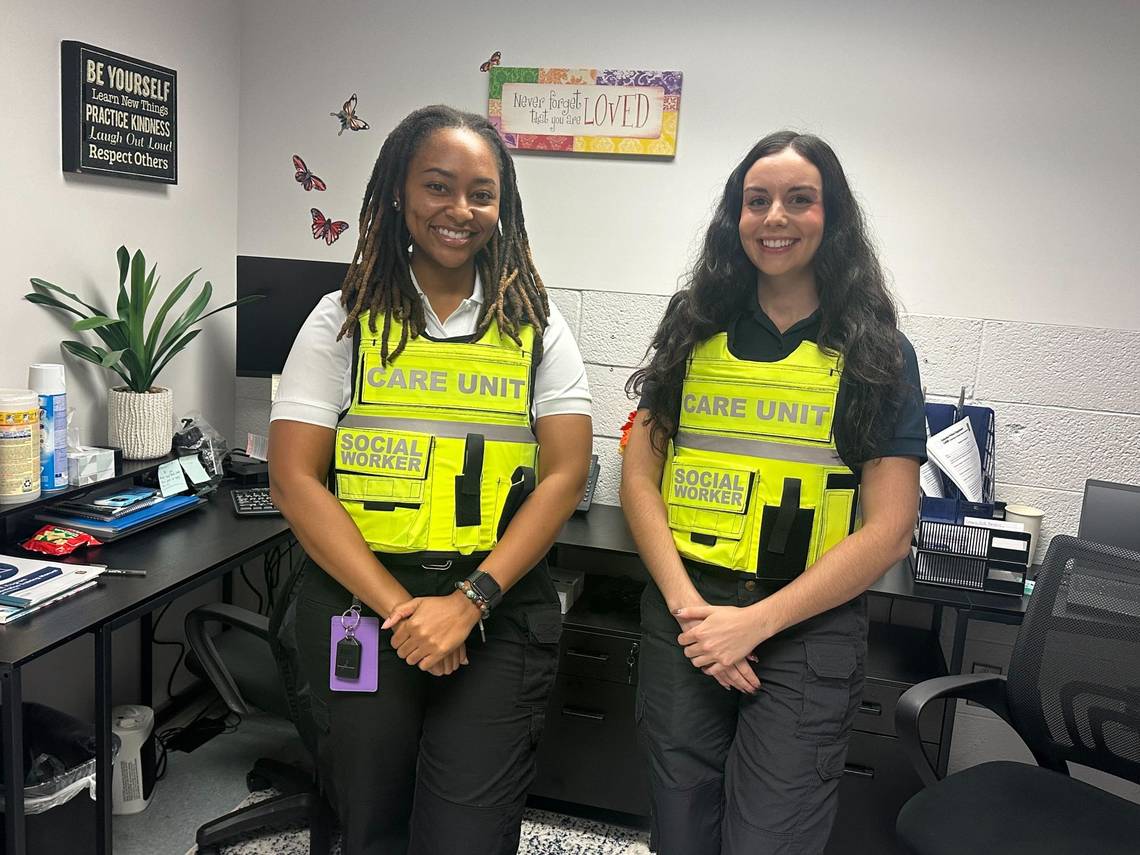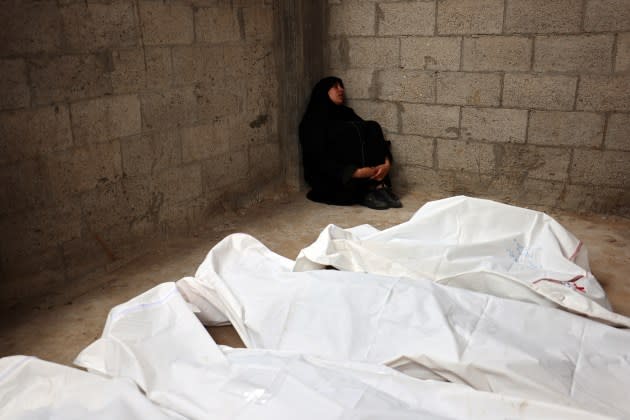
As the small-town detective ate lunch with the little boy who’d just seen his uncle shot, she couldn’t have known that a few years later, she’d be arresting him for breaking into cars.
But in the eastern Wake County town of Zebulon, that’s exactly what police were seeing — young lives shattered by trauma, then lost to the cycle of crime. The little boy at lunch would rack up charge after charge, landing in juvenile detention by his 17th birthday.
Now, he’s charged with murder in the drive-by shooting of an innocent bystander.
Police Capt. Edwin Killette, 41, is tired of seeing children end up like that. That’s why in Zebulon, with a population just 2% that of Raleigh’s, Killette, his colleagues and two Triangle graduate students are working to change the fabric of policing juveniles.
The Zebulon Police Department rolled out its Community Advocacy & Resource Enhancement unit last month, the only program of its kind in North Carolina. Composed of two interns enrolled in master of social work programs, the CARE unit is unique for its focus on helping traumatized juveniles.
Here’s how it works:
-
If a police officer encounters a juvenile who is a witness, suspect or victim of a crime, or who the officer thinks has been exposed to trauma, the officer will make a referral to the CARE unit.
-
An intern with the CARE unit will reach out to the juvenile’s family and set up a time to meet.
-
Afterward, the social worker can connect the family with social services or other resources.
-
The social worker will continue working with the family as needed.
“We are specifically focusing on juveniles because if we can stop, or at least buffer, that trauma when it happens, then the likelihood of them becoming an adult offender could be significantly reduced,” said Killette, who oversees the unit.
How it began
The CARE unit was born out of a project by Detective Kerry Burke, a fellow with New Blue, an initiative started by two North Carolina police officers to encourage innovation among young officers nationwide, according to Killette.
Zebulon had seen a 106% increase in children committing crimes and a 45% increase in children who were witnesses to or victims of a crime or trauma from 2013 to 2022, according to New Blue’s website. As part of the program’s Class of 2023, Burke hoped to change that by promoting trauma-informed policing for children and their families.
Burke discovered the Sylva Police Department’s Community Care program, which uses interns from Western Carolina University, Killette said. That sparked the model for Zebulon’s CARE unit, though Zebulon decided to focus on juveniles rather than the entire community .
New Blue gave the Zebulon Police Department a $5,000 grant to buy bulletproof vests, computers, radios and business cards for the interns, Killette said. Last winter, the department began recruiting the interns, reaching out to N.C. State and N.C. Central universities.
“They were very helpful in choosing people that they thought would be capable of doing this effectively and working in this kind of environment,” Killette said.
Ultimately, the department chose Kayla Hawkins, 27, a second-year master’s student at NCCU, and Sarah Jump, 24, a second-year master’s student at N.C. State. Hawkins works Tuesday-Thursday from 8 a.m. to 4 p.m., while Jump works Wednesday-Friday from 8 a.m. to 5 p.m. The two interns receive part-time employee pay, Killette said.
And while the department waited for the interns’ fall semester to begin in late August, officers began taking down referrals for the CARE unit in June, according to Killette. That allowed Hawkins and Jump to jump in from day one.
“It has been a breath of fresh air just seeing how welcoming people have been,” Jump said in an interview. “It makes me really excited just for the impact we will be able to make for children and youth who get to utilize services from us.”
As civilians with no prior law enforcement experience, the world of policing was a big change, both interns said.
And though they’re only a month in, they said they already know their time with the CARE unit will leave a mark.
“I’m just blessed to be here,” said Hawkins, a former juvenile court counselor. “Miracles can happen and things can happen when you least expect it, and this opportunity came right on time.”
Measuring success
The Police Department is working with researchers to gauge the unit’s success. In the meantime, the CARE unit will look at 911 call trends including for specific homes, and quarterly crime statistics.
While Killette hopes to see crime rates go down, he says the unit will remain focused on helping to prevent and intervene in trauma that can spiral into a life of crime, like the little boy the detective ate lunch with years ago.
The department didn’t have the resources at the time to get the boy the help that could have changed his life – and, Killette wonders, possibly saved another child’s life.
“If the CARE unit would have been there where we could have them interact with him then and provide his family with the things that they needed for him, if we could have just turned his life [around] a little bit, would that girl still be alive?” he said.
EMEA Tribune is not involved in this news article, it is taken from our partners and or from the News Agencies. Copyright and Credit go to the News Agencies, email news@emeatribune.com Follow our WhatsApp verified Channel




